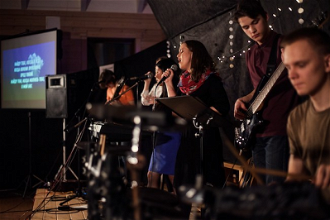Church condemn EU funding for 'spare embryo' research
Europe's bishops and life groups across the continent have condemned today's decision by the European Commission allowing EU funding of destructive stem cell research using so-called 'spare embryos'. Mgr Noel Treanor, Secretary General of the Commission of the Bishops' Conferences of the European Community (COMECE), made the following statement: "We sincerely regret the European Commission's proposal for guidelines on EU-funded human embryonic stem cell research. Such research raises fundamental moral problems because it involves the destruction of human embryos. For this reason, it is not permitted in several EU Member States. "The Commission proposes to fund such research using embryonic stem cells drawn from human embryos that were created before 27 June 2002. While this ought to ensure that human embryos are not deliberately created for research purposes, which is to be welcomed, it does not resolve the fundamental ethical issue. "The Commission also proposes that the research would only be carried out in those Member States where it is permitted under national law. This ought to be self-evident. However, all member states, including those where such research is illegal, contribute to the common EU budget and would therefore be required to support such research financially. "In our view, the principle of subsidiarity requires that the decision on whether to provide financial support for research that raises such serious moral concerns should be made by individual Member States. The decisions of countries in this sensitive area are rooted in historical experiences as well as in philosophical and religious orientations. Given the fundamental differences between the Member States regarding research with human embryonic stem cells, the EU should refrain from joint financing of such research projects. "We hope that scientific advances will soon make new therapies available for illnesses which are incurable today. There is, for example, promising research involving adult stem cells, which carries high therapeutic potential and deserves EU funding. At the same time, it is not clear whether research on human embryonic stem cells will ultimately lead to therapies. Above all, we believe that human life has an intrinsic and absolute value at every stage of its development, and that it should not therefore be used as "raw material". A good end cannot be used to justify any means. "The rejection for moral and anthropological reasons of the use of human embryos and embryonic stem cells is not an attack on scientific research. It is about ensuring that science does not conflict with human rights. "We therefore hope that the Council of Ministers will decide not to use common EU funds for research using human embryos and embryonic stem cells." Anthony Ozimic political spokesman for the Society for the Protection of the Unborn Child said: "The European Commission's decision undermines the freedom of nations to defend the right to life, in particular the right to life of newly conceived embryonic children, the smallest and most vulnerable members of the human race. Destructive research on human embryos is banned in a number of EU member states including Ireland, where such research is contrary to the Constitution's protection of unborn children from conception onwards. This means that taxpayers in those member states will be forced to pay the EU to undermine their own laws and fund unethical research in neighbouring countries. "The Commission claims that its decision 'recognises the principle of freedom of research which is enshrined in the European Charter of Fundamental Rights'. We call on EU member-states to defend their sovereignty to protect the right to life from such liberal interpretations of the Charter."


















